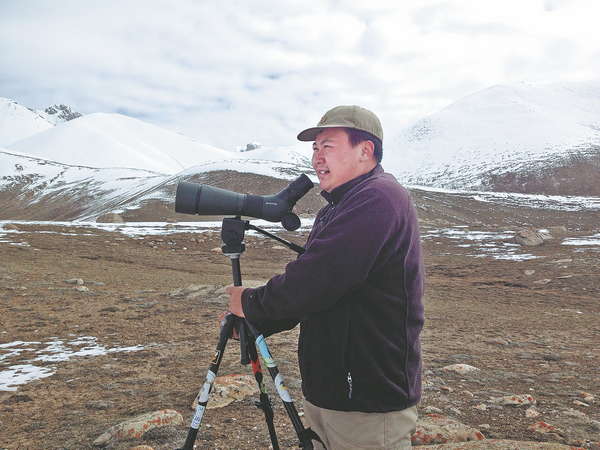Under our wing


Two worlds collide
Huang has been studying conflicts between humans and wildlife since his doctorate. When he was studying at Kunming Institute of Zoology, Chinese Academy of Sciences, he surveyed on the conflicts between humans and Asian elephants.
He started to study the coexistence of birds and humans in 2019. "The habitats of humans overlap significantly with the habitats of wild animals, including birds. Birds, in particular, are most likely to come in close contact with humans, which inevitably leads to some conflicts between the two," Huang explains.
Professor Liu Yang, from School of Ecology, Sun Yat-sen University, is co-writer of Huang's article. Liu, 42, is an expert in ornithology and previously authored the CNG Field Guide to the Birds of China.
According to Liu, birds provide vital ecological services, transcending human perspectives to influence the ecosystem as a whole.
Liu exemplifies the significance of bird contributions, such as aiding in plant pollination, a critical process for plant reproduction, and actively participating in pest control by reducing insect populations. Birds, as ecological stewards, play a crucial role in maintaining the delicate balance of nature and fostering the thriving coexistence of diverse species within an ecosystem, he says.
According to Liu, previous research into occasions when humans came into conflict with birds was often confined to single disciplinary fields or specific geographical regions. However, Huang's study, known as a meta-analysis, brings together different research cases for comprehensive study.

The research conducted by Huang encompasses various disciplines, such as ecology, sociology and others, within which he has reviewed over 18,000 papers pertaining to related topics, and filtered 122 articles for further analysis.
The first part of the study examines the net effect of birds on crops. According to Birds of the World, approximately 10 percent of all bird species consume crops.
A study of the ecological and economic services provided by birds on Jamaican Blue Mountain coffee farms shows that birds control coffee berry borers and thus increase coffee yield and farm income, which is a potentially important conservation incentive for coffee producers.
Huang and his colleagues also looked at the effectiveness of mitigation measures and found that nonlethal measures to deter birds are more effective in reducing crop losses.
"The simplest methods are sometimes the most effective," Huang says. "We found that, on a farm, simply using ribbons can reduce the loss of crops to birds."
Huang's study also reveals that simply changing sowing practices such as sowing deeper into the earth, or aligning sowing timing with bird migration patterns, can effectively reduce crop losses attributed to birds.




































